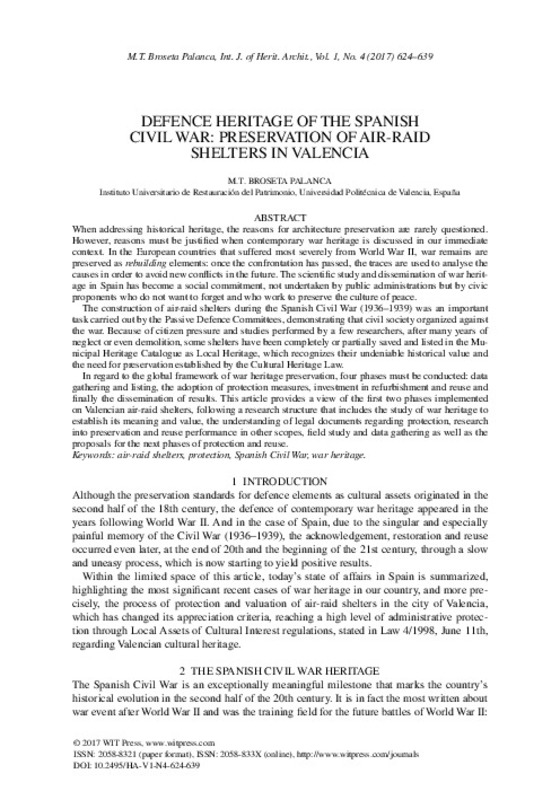JavaScript is disabled for your browser. Some features of this site may not work without it.
Buscar en RiuNet
Listar
Mi cuenta
Estadísticas
Ayuda RiuNet
Admin. UPV
Defence Heritage of the Spanish Civil War: Preservation of air-raid shelters in Valencia
Mostrar el registro completo del ítem
Broseta Palanca, MT. (2017). Defence Heritage of the Spanish Civil War: Preservation of air-raid shelters in Valencia. International Journal of Heritage Architecture. 1(4):624-639. doi:10.2495/HA-V1-N4-624-639
Por favor, use este identificador para citar o enlazar este ítem: http://hdl.handle.net/10251/104551
Ficheros en el ítem
Metadatos del ítem
| Título: | Defence Heritage of the Spanish Civil War: Preservation of air-raid shelters in Valencia | |
| Autor: | ||
| Entidad UPV: |
|
|
| Fecha difusión: |
|
|
| Resumen: |
[EN] When addressing historical heritage, the reasons for architecture preservation are rarely questioned.
However, reasons must be justified when contemporary war heritage is discussed in our immediate
context. In the ...[+]
|
|
| Palabras clave: |
|
|
| Derechos de uso: | Reserva de todos los derechos | |
| Fuente: |
|
|
| DOI: |
|
|
| Editorial: |
|
|
| Versión del editor: | https://doi.org/10.2495/HA-V1-N4-624-639 | |
| Tipo: |
|









